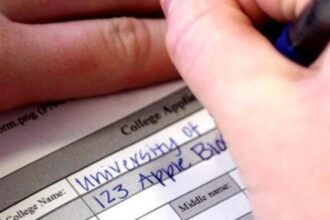The closing dates for 2026 university applications have started to roll out, and missing these key deadlines could cost students the opportunity to pursue their desired qualification. While most higher education institutions across South Africa have opened their application portals, the deadlines vary depending on the university and programme.
This guide is designed to help students, parents, and guardians track all critical deadlines, required documentation, and funding options—ensuring a smooth transition into the 2026 academic year.
Why Staying Informed About Closing Dates Matters
One of the most common mistakes South African students make is assuming that all university applications close at the end of the year. In reality, South African universities each have their own cut-off dates—many of which fall in mid-year or early in the final quarter.
Late submissions are rarely accepted, especially for high-demand programmes like Medicine, Health Sciences, Law, and Engineering. Applying early is not just about meeting the deadline—it’s about maximising your chances of acceptance, accommodation placement, and funding opportunities such as NSFAS.
Confirmed University Application Closing Dates for 2026
Below is a list of key closing dates for South African university applications for the 2026 academic intake. These dates have been officially confirmed by the respective institutions:
| University Name | Application Deadline for 2026 |
|---|---|
| University of Cape Town (UCT) | 31 July 2025 |
| Stellenbosch University | 31 July 2025 |
| University of Pretoria (UP) | 30 June 2025 |
| University of the Witwatersrand (Wits) | 30 September 2025 |
| Nelson Mandela University | 30 September 2025 |
| University of KwaZulu-Natal (UKZN) | 30 September 2025 |
| Durban University of Technology (DUT) | 30 September 2025 |
| Cape Peninsula University of Technology (CPUT) | 30 September 2025 |
| University of Johannesburg (UJ) | 31 October 2025 |
Note: For programmes such as Medicine, Fine Arts, and Health Sciences, the closing dates are often earlier and may include additional requirements like portfolios, admission tests, or motivational letters.
Advantages of Early University Applications
Submitting your application early is not just a good idea—it’s a strategic move. Here’s why:
- Secure your spot in competitive programmes.
- Qualify for on-campus accommodation before space runs out.
- Meet critical funding application deadlines, such as those for NSFAS, university bursaries, or private financial aid.
- Avoid last-minute rush, which often leads to incomplete applications or missing documents.
Planning ahead ensures you’re not left out when programmes reach their capacity.
Required Documents for 2026 University Applications
Every university has slightly different requirements, but these are the standard documents most institutions ask for:
- Certified copy of your South African ID or passport
- Final Grade 11 results or most recent academic transcript
- Proof of residential address
- Proof of application fee payment (where applicable)
- Additional documents for some programmes, such as:
- Portfolios
- Motivational letters
- National Benchmark Test (NBT) results
It’s wise to begin collecting and certifying these documents now to avoid delays or rejections.
NSFAS and Other University Funding Deadlines
The National Student Financial Aid Scheme (NSFAS) is a major source of funding for South African students from low- and middle-income households. Applications for NSFAS 2026 funding are expected to open in the second half of 2025, with deadlines expected near the end of the year.
Alongside NSFAS, many universities offer their own bursaries and scholarships, which typically share the same application closing dates as academic programmes. Be sure to check individual university financial aid pages for details.
Private Education Funding: Study Loans and More
If you are not eligible for government funding, private education finance is another reliable option. Organisations like Fundi provide a wide range of education finance solutions, including:
- Study loans for undergraduate and postgraduate programmes
- Device financing for laptops and other learning tools
- Accommodation support, especially for students relocating to urban university campuses
Applying for financial support early helps to align your funding with the academic year timeline.
Application Checklist for the 2026 Academic Year
To avoid any complications and ensure a successful application, follow this step-by-step checklist:
- Research application deadlines for each university and specific programme.
- Apply as early as possible, don’t wait for final matric results.
- Prepare all necessary documents and get them certified.
- Keep digital and printed copies of everything submitted.
- Check financial aid opportunities and match deadlines accordingly.
- Use reliable resources like FundiConnect or official university portals for updates.
- Track your application status using the universities’ application dashboards.
Conclusion
The closing dates for 2026 university applications are approaching fast. Whether you’re targeting a top-tier institution like UCT or Stellenbosch, or planning to join a University of Technology, now is the time to act. Early planning not only improves your chances of being accepted, but also unlocks access to residence, funding, and academic support.
Remember, late applications are rarely entertained for high-demand fields, and missing the NSFAS application deadline could mean missing out on financial support. Be proactive, get organised, and apply early to shape a successful academic journey in 2026.










